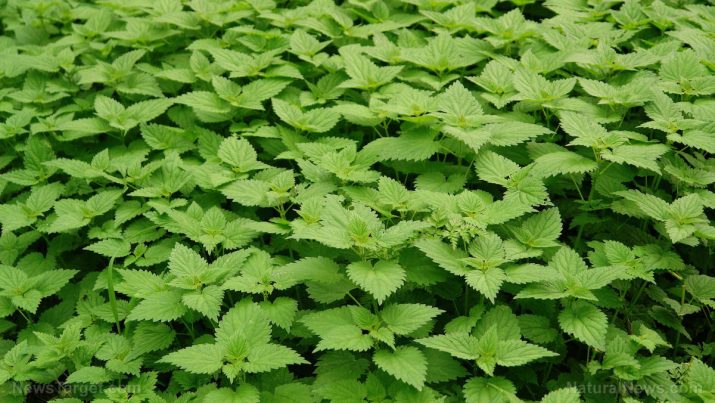Common weeds that can be used as food and medicine
Friday, February 22, 2019 by Mary Miller
http://www.bugout.news/2019-02-22-common-weeds-that-can-be-used-as-food-and-medicine.html

Weeds might be a nuisance to gardeners, but they can save your life if you know how to use them. When SHTF, you can look for a variety of lowly and common weeds to use as sources of nutrition or as natural remedies. Learn how to survive the wild by identifying these common weeds and using them to ward off starvation or to help treat a number of injuries or ailments. (h/t to SurvivalBlog.com)
Stinging Nettles
Stinging nettles have earned their name from the sharp and hollow hairs or “nettles” that cover the stems and leaves of the plant. If your skin touches them, they will break off and cause a painful stinging sensation. However, this shouldn’t dissuade you from utilizing stinging nettles for their medicinal properties. If handled properly, stinging nettles can be invaluable for your survival needs. Wear long sleeves and wear rubber gloves when picking these nettles. You can then remove the plant’s harmful compounds by soaking the leaves in water. Once the leaves have dried, they should be safe to touch and will no longer sting you. Stinging nettles are a rich source of iron, manganese, potassium, calcium, and vitamins A and C, so you can cook and eat them to boost your nutrient intake. This weed possesses natural anti-inflammatory properties that can help relieve the symptoms of arthritis and rheumatism. You can also drink nettle tea to alleviate asthma and allergy symptoms.
Plantain
If you’re planning on foraging for stinging nettles, it would be useful for you to pick some plantain weeds as well. The leaves of this plant have healing properties. If your skin makes contact with the stinging nettles, simply crush a plantain leaf in your hands and rub its soothing juice all over the affected area to bring immediate relief. You can even chew the leaves into a mash and apply them topically to draw out venom from snake bites, spider bites, and bee, wasp or hornet stings. This edible weed also makes for a great survival food as it is an excellent source of vitamin B1 and riboflavin. You can eat the leaves raw in a salad or cook them as a potherb. You can even use the roots to create a strong tea that can help relieve the symptoms of a number of health conditions, such as diarrhea, dysentery, gastritis, peptic ulcers, irritable bowel syndrome, hemorrhage, hemorrhoids, cystitis, and bronchitis, inflammation of mucous membranes, sinusitis, coughs, asthma, and hay fever.
Mullein
Mullein grows all over North America, but if you plan to harvest this weed, make sure that you get it in a clean area far away from any roads, otherwise, you might expose yourself to harmful toxins. Mullein has a long history of being used as a form of alternative medicine, which has recently been backed up by scientific evidence. This plant has potent anti-inflammatory, antihistaminic, and antiseptic properties. Take an infusion of mullein flowers internally to treat a variety of chest problems, including the bleeding of the lungs. You can extract the plant’s powerful oils to help destroy disease-causing germs and bacteria. You can also infuse the flowers in olive oil to create earache drops. This antibacterial infusion can even be used to treat hemorrhoids and other mucous membrane inflammations.
Grass
It doesn’t matter if the grass is greener on the other side. As long as you have grass, you can eat it as an emergency survival food. You can find grass almost anywhere, and you’ll be glad to know that all wild grasses are edible. They even contain all eight essential amino acids, making it a complete protein. If you ever find yourself starving in the middle of nowhere, just grab a few blades and start chewing on them. You can then suck on the nutritious juices inside. Some grasses might be too difficult to eat directly and you might find yourself with a mouthful of tough pulp. Simply spit out the stringy pulp if it is too much for you and start chewing on some fresh blades instead. (Related: Learn about these weeds that can be used to treat disease or provide nutrition when things go sour.)
Sources include:
Tagged Under: Tags: alternative medicine, bug out, emergencies, emergency food, emergency medicine, emergency preparedness, first aid, grass, herbal medicine, mullein, off grid, outdoors, plantain, preparedness, prepper, prepping, prepping tips, remedies, self-reliance, SHTF, Stinging Nettle, survival, survival food, Survival Tips, survivalist, useful weeds, weeds, wild foods
RECENT ARTICLES
COPYRIGHT © 2017 · BUGOUT NEWS

